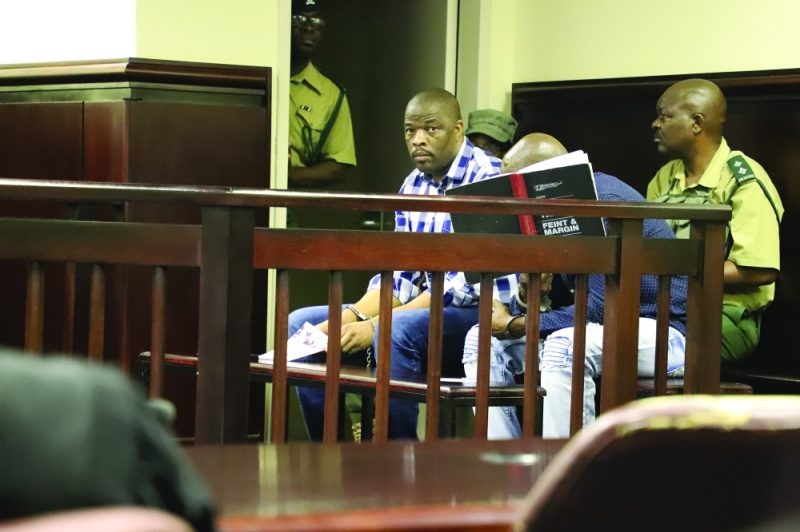Provocation could determine death row inmate’s fate
Mompati Tlhankane | Monday April 3, 2023 06:00


Appearing before the Court of Appeal (CoA) on Tuesday, Maxala said his alleged assault at the hands of the deceased should be sufficient to establish reasonable provocation.
When Justice Matlhogonolo Phuthego found Maxala guilty of murder in 2021, before the eventual death sentence, he (Justice Phuthego) said it was his finding that provocation was not available to Maxala as self-defence because according to the evidence, he used a firearm to kill the deceased. “I find this not to be proportionate to the assault and insults he received from the deceased,” Phuthego said then.
Making his submissions before the CoA appeal bench this week, Maxala’s lawyer Rennetswe Rabosotho said the trial court misdirected itself when it found that provocation was not an extenuating factor.
In law, provocation is when a person is considered to have committed a criminal act partly because of a preceding set of events that might cause a reasonable individual to lose self control before there has been time for their passion to cool. On the fateful night in 2015, Maxala alleged that the deceased assaulted him with a softball bat, metal rod and an empty bottle of beer.
Subsequently Maxala's actions were in response to provocation. “Cooling off was not enough because the events happened just under three hours. He said it was not only the assault which attached weight to the provocation but Mlalazi went on to insult him and his parents during a telephone conversation,” Rabosotho emphasised.
The lawyer also said the lower court was quick to rule the incident as a premeditated murder. He said what happened was not deliberate and cold blooded as the court put it. “The two had no history of animosity and they met for the first time that day. This all happened in quick succession and there is no evidence that the appellant planned to kill the deceased,” he indicated. He said Maxala never intended to unlawfully commit a crime but rather acted under a sudden loss of control due to an emotional outburst. Rabosotho pleaded with the court to set aside the conviction because the death penalty has been hanging over Maxala’s head since 2021.
“Find a suitable sentence”, he highlighted. Rabosotho submitted that provocation plays a mitigating factor to reduce the severity of the crime. He also highlighted that his client wanted to meet the deceased that night because he wanted to talk since the matter was weighing on his soul. “Why discuss with a loaded firearm? Why follow the deceased with a loaded firearm if indeed he wanted to discuss?” CoA’s Justice Lakhvinder Singh Walia asked Rabosotho. In response Rabosotho said having been assaulted by the deceased and his friends it was only fair for Maxala to carry a gun. For her part state lawyer, Keletso Mfosi said provocation is not a factor that can tilt the scales because Maxala had plenty of time to cool off. “He should have cooled off and not have continued with his pursuit of the deceased.
The events which happened in between also gave him ample time to cool down,” she highlighted. She said the police had also advised Maxala to call them in case he came across the deceased but he did not. Mfosi further said there was premeditation on the part of Maxala because he hunted the victim until he found him. “He long decided to kill the deceased when he went home to fetch the firearm.
He wanted to cause grievous harm and apart from the gun, he kept on calling the victim on the telephone until he located him,” she pointed out. Meanwhile, Justice Isaac Lesetedi, who was part of the three CoA bench, asked Mfosi if she did not consider the appellant as a man who had a sense of grief. “This is a man who was assaulted in front of a woman. They beat him up and drove away. Could you treat him as a man with greater moral blameworthiness ?” he questioned. Judgement on the matter will be delivered on April 14.
